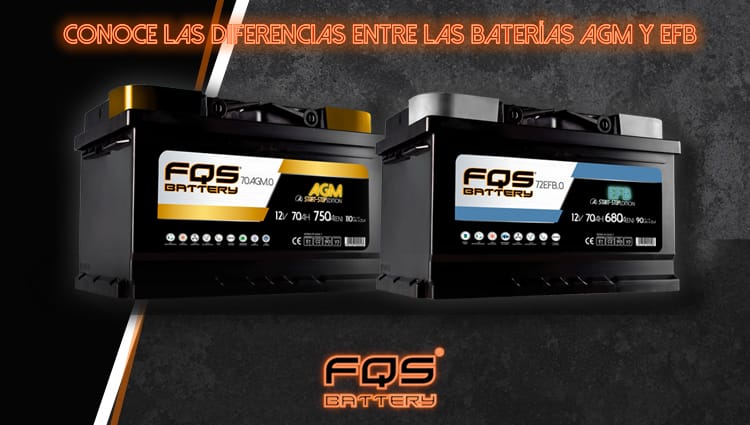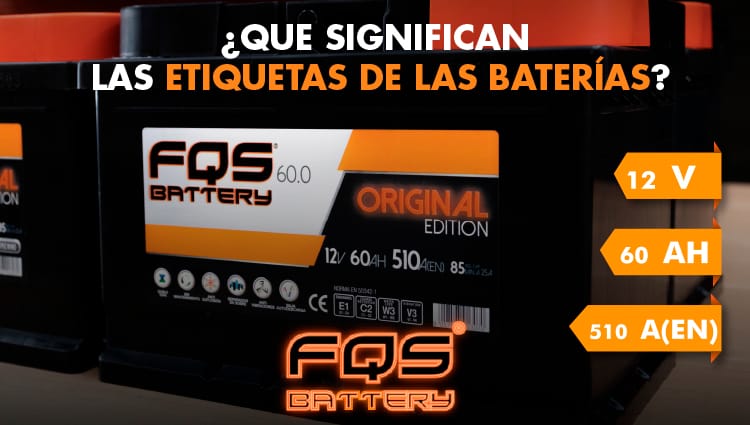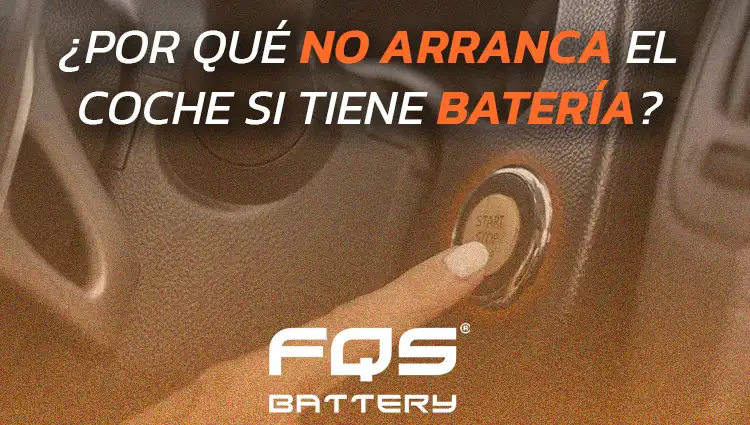AGM and EFB batteries: what to know before buying and differences with regular batteries
One of the most common questions our customers ask is about the differences between AGM and EFB batteries. At FQS Battery, we strive to keep you informed to offer you the best service and help you choose the right battery for your vehicle.
AGM and EFB batteries are two types of batteries that have gained popularity in recent years.
Its acronym refers to Absorbent Glass Mat (AGM) batteries and Enhanced Flooded Battery (EFB).
Both offer specific advantages compared to conventional lead-acid batteries, but it's important to understand their differences before making the best choice. Let's review all the information in detail:
Main features of AGM batteries
AGM batteries are a evolution of conventional lead-acid batteries. They use an advanced technology that involves absorbing the electrolyte into a glass fiber, allowing for a more compact design and greater efficiencySome of its key features are:
Cold start
AGM batteries have a excellent cold start capability, which makes them ideal for climates with these characteristics.
Deep discharge
They can bear deeper discharges without damage, making them suitable for energy-intensive applications.
Absorbed Electrolyte
Conventional car batteries use sulfuric acid as their electrolyte, and this acid can be corrosive and dangerous if the battery leaks or ruptures.
Absorbed electrolyte batteries generally do not leak significant corrosive substances in the event of a rupture. This makes these batteries safer and more environmentally friendly compared to conventional lead-acid batteries.
Use in Start-Stop systems
These batteries are designed to withstand rapid charging and discharging, making them ideal for regenerative braking start-stop systems.
Regenerative braking is an innovative technology that allows vehicles to recover and store some of the energy normally lost during braking. This energy is converted and stored in the vehicle's battery for later use. This is essential for achieving fuel savings, which in turn contributes to reducing carbon dioxide (CO2) emissions.
Main features of EFB Batteries
Here are some of the key features of EFB batteries:
Better performance
EFB batteries are the evolution of conventional batteries. These batteries can be used in vehicles seeking improved performance. At FQS, we always advise that the batteries recommended by the manufacturer are used.
Shelf life
EFB batteries have a pretty good shelf life and can meet the needs of most drivers. And while it is true that AGMs offer a higher quality of life, there are other factors to consider, such as working temperature and location, and it all depends on what your current needs are.
They withstand long inactivity
Unlike conventional batteries, EFBs are designed with more durable plates and a special separator system that retains the active ingredient, allowing them to maintain their performance even after long breaks.
Their ability to withstand long periods of inactivity without significantly losing charge or capacity is one of the key advantages of EFB batteries.
This is especially useful in vehicles that are not used regularly or that remain parked for long periods.
Improved thermal stability
This stability is essential in hot climates, where temperatures can reach extreme levels. A component with good thermal stability not only ensures optimal performance in these conditions, but also prolongs its lifespan and reduces the risk of premature failure.
What are the main differences between AGM and EFB batteries and conventional batteries?
Both AGM and EFB batteries offer significant advantages over traditional lead-acid batteries:
- Greater durability: They have a longer lifespan due to their ability to withstand repeated charge and discharge cycles.
- Greater resistance to deep discharge: They are less susceptible to damage if fully discharged.
- Less maintenance: They do not require refilling with distilled water and are less prone to leaks.(AGM)
- Better performance in extreme climates: They perform well in both cold (AGM) and warm (EFB) climates due to their sealed design and cold start capability.
So, which one should you choose?
The choice between an AGM and an EFB battery It will depend on the needs of your vehicle.
If you have a vehicle with advanced Start-Stop technology, with regenerative braking only the AGM battery could be the best option.
However, in warm areas, An EFB battery will offer better performance than an AGM battery.
In any case, it's always important to check the manufacturer's specifications and your vehicle's specifications. Talking to a professional before making a final decision can be a good option.
A proper battery will ensure optimal performance and a long life for your vehicle.
If you have any questions, we encourage you to ask our team of professionals, who will be happy to help you.


